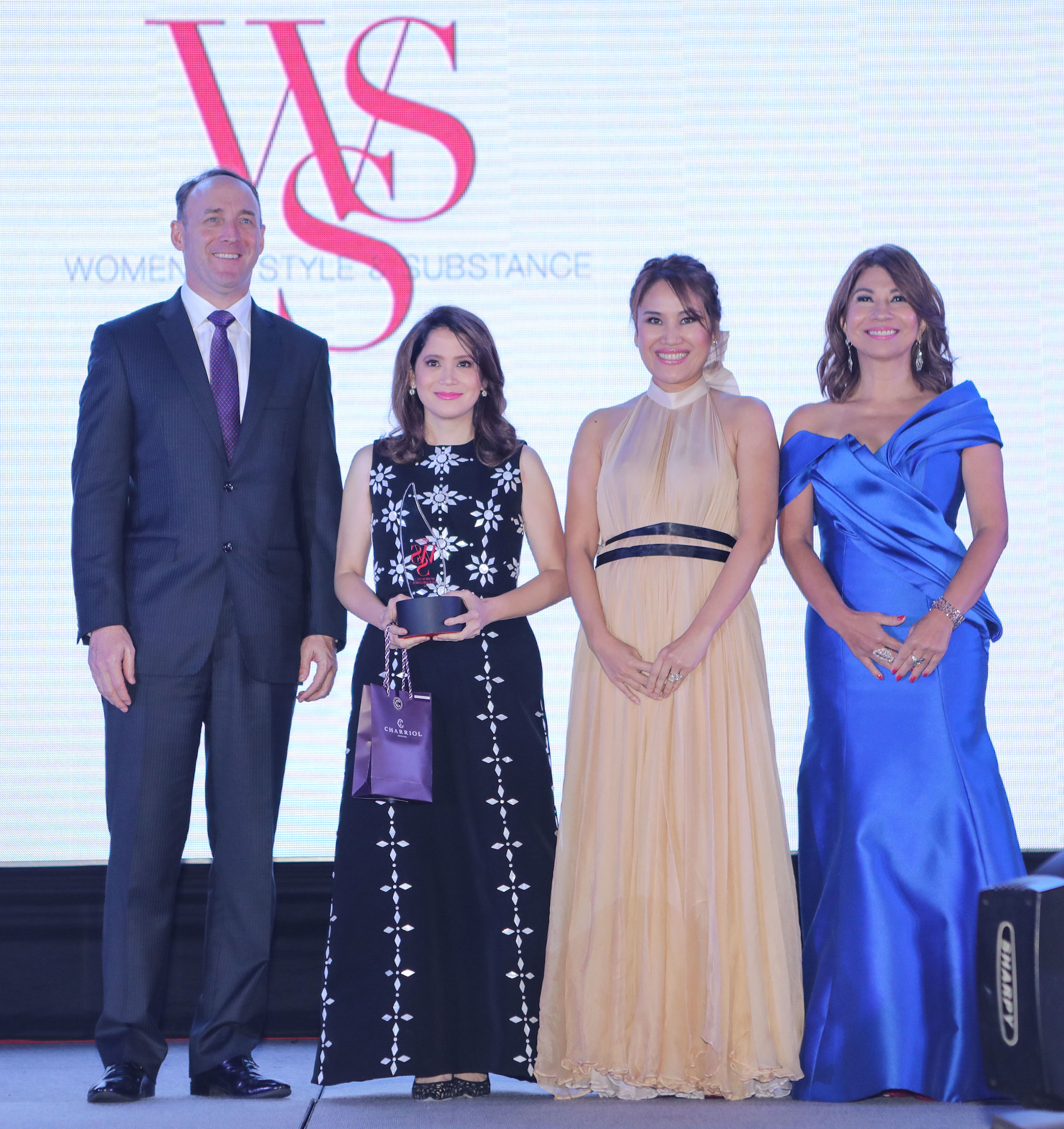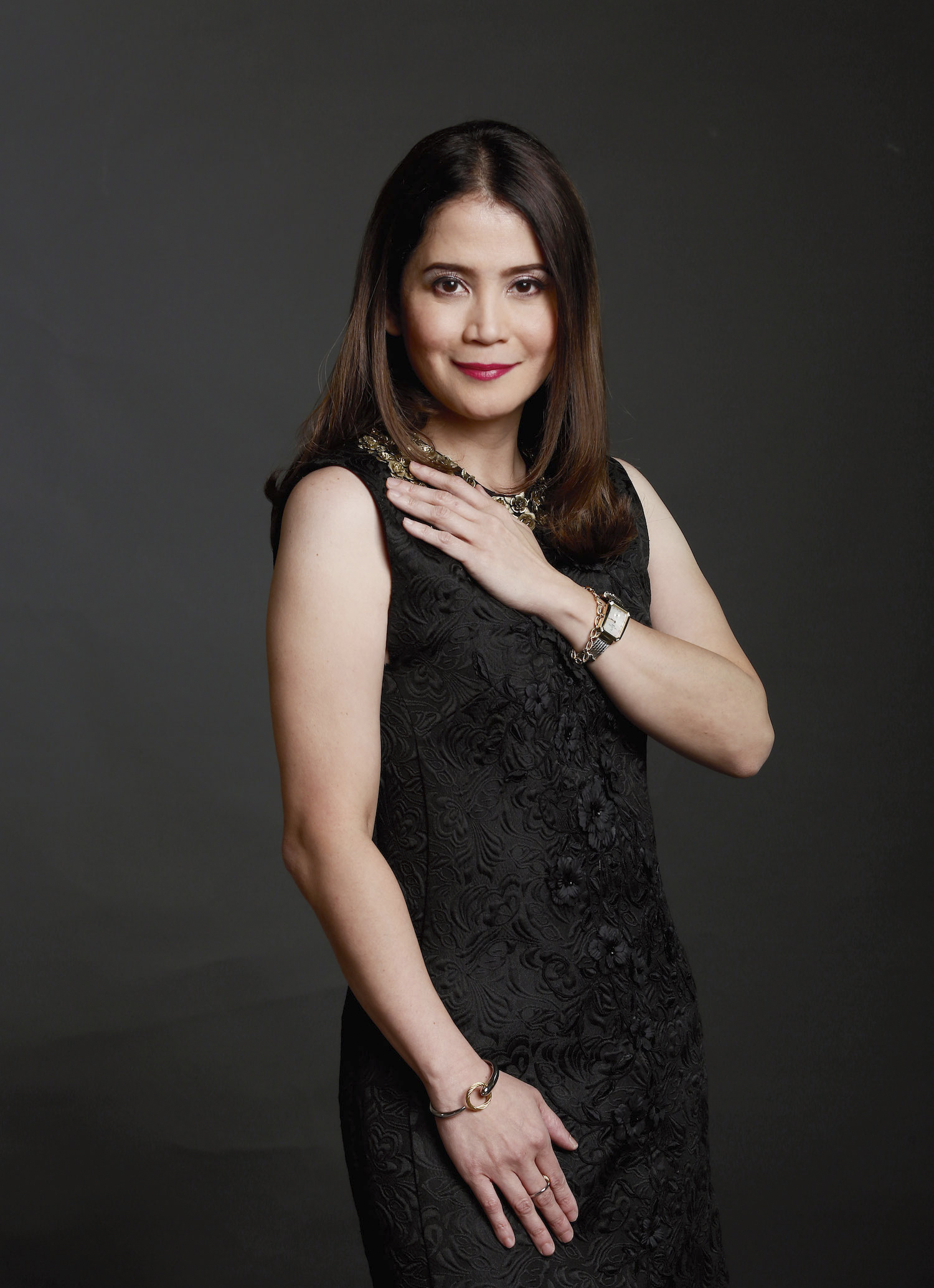(Editor’s note: Before newly appointed Department of Tourism Secretary Berna Romulo Puyat became the woman of the hour soon after President Rodrigo Duterte entrusted her with the country’s tourism portfolio, the hardworking and personable public servant was an Economics professor for almost 14 years.
(Coming from an illustrious and political family [her father is former Senator and Foreign Affairs Secretary Albert Romulo], Berna joined government service in 2005 as a consultant to the Presidential Management Staff. But it was when she became undersecretary of the Department of Agriculture a few years later that Berna came to her own, as she endeared herself to almost everyone–from farmers to fishermen, journalists to chefs. An unabashed foodie, she also loves to share her edible finds with the public through social media, as she scours the country in her former role as an agriculture “U-sec.”
(In 2017, PeopleAsia honored Berna, together with 13 other accomplished women, by including her in our annual list of Women of Style & Substance. Get to know the woman behind the secretary in this August 2017 piece.)

By Kristel Dacumos-Lagorza
Photography Dix Perez
Even after 11 years of service, Undersecretary Bernadette Romulo Puyat, more fondly called “Berna,” is still as bright eyed and optimistic as the first day she came to work for government. “This is my third residence,” she beams proudly, displaying the enthusiasm of a new graduate.
Before joining the government, the mother of two worked as an Economics professor at the University of the Philippines for almost 14 years. “It had never crossed my mind to work in government then, even if I grew up campaigning for my dad, former Foreign Affairs Secretary Albert Romulo,” she shares with a laugh. “I guess I became indifferent, because, basically, as a kid, my summers were spent campaigning for my grandfather Carlos (Romulo) who ran for assemblyman in 1978, and my father who ran as senator in 1985. So for me, I was happy to be a housewife and mother, and teacher,” she shares candidly.
Berna continues, “I started teaching right after I finished my Master’s Degree and it was fantastic! Teaching gave me time to take care of my growing family and be really there for them.”
Then, Yap, who was set to become the secretary of the Department of Agriculture, invited her to work under his team again. Berna politely declined at first, unsure about the leap from PMS to Agriculture, but Yap was persistent. “If it’s not a good fit for you, you can always go back to teaching,” he assured her. And so she was persuaded.
“What was good about working under the Department of Agriculture, and which probably convinced me to join, was the fact that it was probably the only department that my dad was not the boss,” she says with a laugh. “When I was working in PMS, they’d always point out or mention — ‘Oh, your dad was my boss.’
“I’m very proud of my dad, but it’s hard to be put in a position where you’ll always be compared,” she shares. So Agriculture opened up a world of opportunity where she saw that she could carve her own place and make her own imprint. “In Agriculture, he had no power, no influence,” she laughs. “So I said yes!”

She was then given the important responsibility of handling foreign grants, dealing with private banks and agencies, and talking to counterparts all over the work, which was relatively easy for the Economics teacher who understood the greater landscape. Then in 2010, with the change of government, she was bestowed with the new title of Undersecretary of Agriculture for Special Concerns, which dealt with the needs of women farmers, senior citizens, persons with disability and such.
Compared to her other roles, this was a job that intrigued her and challenged her on a deeper level. “I wanted to do it, but honestly I was hesitant, because I didn’t know how effective I would be,” she reveals. “In my previous positions, I felt confident talking to foreign leaders and businessmen. I donned the suit and discussed the projects in (the familiar language of) economics and business. But when it came to farmers and women, my fear was they wouldn’t relate to me, or see beyond how I looked and who I was,” shares Berna, who is still a beautiful woman with youthful, alabaster skin. “How could I be effective if I could not connect?”
Finding common ground
But she soon realized that we are all the same, and no matter our background, we will always be connected through our sense of family and our common struggles. In fact, it was in her own “loss” that she found common ground with the people she was set to serve.
“At that time, around 2010, my husband Dave passed away. We had been together 16 years,” she shares. “The irony of it all was when I first started talking to female farmers, and when they found out I was a widow, all of a sudden, they could relate to me.” Her loss opened the doors of understanding.
“They knew that I could understand what they’re going through, as mothers who work to feed their children and put their kids in school. I couldn’t even believe that the worst thing that happened in my life would help me connect with the farmers. They even shed tears for me. They comfort me,” she shares, touched by their compassion.
And this honest experience became the gateway, which encouraged the women to open up to her and share their experiences. Their stories have helped Berna in her own work, identifying the areas of opportunity, which she could address with specific programs and solutions. “I’m touched that they see me now as one of their own. When I’m there, they invite me into their homes. I eat with them, I farm with them, I’ve even become ninang (godmother) to some of their children,” she laughs.
Almost weekly, Berna is on the road visiting hundreds of communities across the country, from the most remote mountain tribes to the farthest coastal communities, learning more about their products, the processes and their agricultural techniques. “As much as possible I try to immerse myself, learning how to till and harvest and do everything that they do. Because I believe, you won’t be able to do your job well, if you don’t try to understand the basic, daily hardship that farmers go through.”
Hope & Harvest
As undersecretary for Special Concerns, Berna’s main focus now is agribusiness and marketing, and, of course, tending to the needs of women farmers, senior citizens and persons with disabilities. “As stated in the Magna Carta, the five percent budget of each department must go to programs and projects for women, and so I ensure that their rights are protected and they’re given fair opportunity in agriculture,” she says.
When it comes to her work and the new programs that the department is working on, Berna immediately lights up and becomes giddy, talking a mile a minute. Her enthusiasm is, indeed, infectious.
Her team is currently promoting the Slow Food Movement, which actually started in Italy. It is about gaining a better understanding and appreciation of where your food comes from. It’s not simply buying ingredients off the shelves, but meeting the farmers and buying directly from them.
Berna also sets up events and festivals in partnership with other agencies. This paves the way for farmers to share their harvest, while local suppliers are given a chance to sell their artisanal products. “It’s about shaking the hands that feed you, and understanding where your food comes from. When you see the love and passion they put into growing your food, you learn to be a more conscious, responsible consumer,” she says.
The movement has become such a great success, and the Department of Agriculture is already enjoying overwhelming support for organic and artisanal products.
Aside from highlighting better local alternatives, Berna is also promoting the indigenous ingredients that are underappreciated by local chefs. “Did you know that abroad, chefs go wild about our calamansi, cacao and chocolate! We take that for granted, but those are some produce that are putting the Philippines on the map. We should embrace and support local,” she says. “We have the best kutsinta in Isabela. Our cacao and chocolate from Davao have been praised and even won in international competitions. It’s not just Philippine mangoes anymore.” One game changer of note that Berna loves is the Madrid Fusion Manila, which she believes showcases the best of Philippine ingredients to the world.
In addition to organizing and supporting food festivals and events like Madrid Fusion, Berna is excited to roll out as well their newest initiative TienDA Farmers Outlet, a small market opportunity where consumers and farmers can meet for direct exchange. “We want to give farmers a platform where they can sell and get the real profits, and where consumers can get their goods at a lower cost, no middle man. It’s a win-win situation,” she shares.
In addition to TienDA, Berna oversees the Philippine Harvest Market held quarterly in partnership with the Rustan’s Group. It’s an agri-food fair, which showcases organic, artisanal, natural and indigenous products. Filipinos are true foodies at heart, so it comes as no surprise that each has become an immense success!
“What I love about my job is that I’ve come to gain a deeper appreciation of my country — its beauty, its bounty, its diversity. We are so rich in resources; and our people are so warm and hardworking. I love that I’m part of a bigger community and that I’m given a role that allows me to bring all that I’m passionate about to the forefront. The time is ripe, and we’re ready to make more connections and bridge the opportunities,” she ends.






